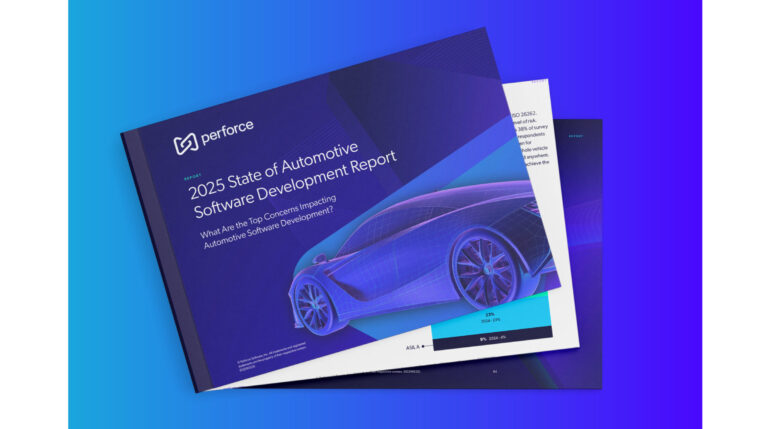A new report on automotive software engineering has revealed an increase in the use of AI, ongoing challenges with code complexity and a stronger focus on safety over security.
The research was conducted by Perforce Software, in partnership with Automotive IQ and the Eclipse Foundation, and is discussed in the 2025 State of Automotive Software Development report. The annual survey provides exclusive insights into the current challenges of developing safe and secure automotive software, especially in the context of increasingly connected and autonomous vehicle systems.
In fact, safety was the top concern in AI-driven vehicle development for 49% of respondents. As a result, teams working under functional safety standards must take extra precautions when implementing AI, since its algorithms are often non-deterministic and require specific handling.
“Automotive software development is becoming more dependent on AI systems, but the software must still be developed, deployed and maintained with safety in mind,” said Jill Britton, Perforce’s director of compliance. “AI systems bring additional challenges to achieving functional safety and to provide guidance, new and updated standards are emerging for their use in safety-critical applications.”
The report also reveals that AI is now driving autonomous vehicle design for 42% of automotive professionals, a 9% increase from last year, with 41% of respondents stating that AI is influencing at least some components in connected vehicles. The leading areas of AI/ML application were ADAS, followed by in-vehicle infotainment systems and lidar components.
In last year’s report, security had overtaken safety as the top concern. However, with the rapid adoption of AI/ML in the development and design of connected and autonomous vehicles, safety has returned as the higher priority in 2025.
Automotive software professionals are increasingly recognizing that high-quality code is essential for both safety and security. However, the complexity of modern codebases makes maintaining that quality difficult – especially for less experienced engineers.
Among respondents with less than one year of experience, 57% identified code complexity as their top concern; this was 45% for those with one to three years of experience. In contrast, 37% of professionals with more than five years of experience cited limited testing resources as their primary quality challenge.
While broader market conditions – such as the global economy and the need to stay competitive – continue to drive most organizations, the report consistently highlights a focus on maximizing existing resources (49%) and upskilling current talent (42%).
To manage increasingly complex codebases, developers are relying on static analysis tools to ensure compliance with industry standards like MISRA and ISO 21434. The survey also found that 30% of teams are prioritizing software quality improvements by using static analysis, version control and continuous testing tools.
Other notable findings include:
· 86% are using at least one coding standard, which is important for code quality.
· 53% use static analysis/SAST tools.
· 89% are required to track code quality metrics to reduce errors — an increase of 12%.
· EV software development is stabilizing, with 47% working extensively on EV systems.
· AI-driven development is growing, with 71% adopting ISO/DPAS 8800 for AI functional safety assurance.
As regulations continue to evolve, demonstrating compliance with functional safety and security standards is more important than ever. The upcoming release of MISRA C:2025 is expected to affect 53% of automotive developers, emphasizing the growing need for strong software quality and compliance tools.
Download the full 2025 State of Automotive Software Development report here.



